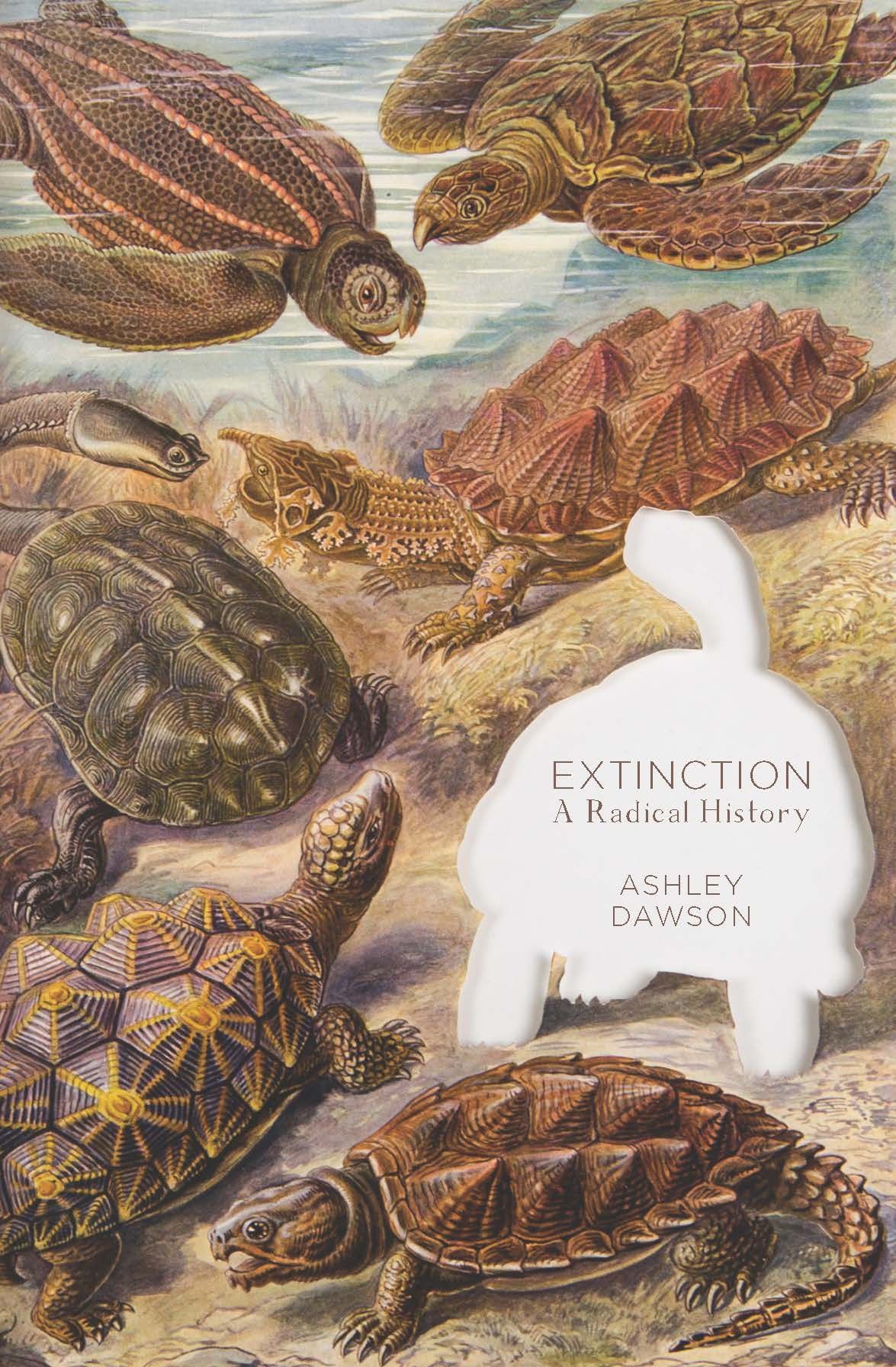Extinction: A Radical History

July, 2016
Some thousands of years ago, the world was home to an immense variety of large mammals. From wooly mammoths and saber-toothed tigers to giant ground sloths and armadillos the size of automobiles, these spectacular creatures roamed freely. Then human beings arrived. Devouring their way down the food chain as they spread across the planet, they began a process of voracious extinction that has continued to the present.
Headlines today are made by the existential threat confronting remaining large animals such as rhinos and pandas. But the devastation summoned by humans extends to humbler realms of creatures including beetles, bats and butterflies. Researchers generally agree that the current extinction rate is nothing short of catastrophic. Currently the earth is losing about a hundred species every day.
This relentless extinction, Ashley Dawson contends in a primer that combines vast scope with elegant precision, is the product of a global attack on the commons, the great trove of air, water, plants and creatures, as well as collectively created cultural forms such as language, that have been regarded traditionally as the inheritance of humanity as a whole.
This attack has its genesis in the need for capital to expand relentlessly into all spheres of life. Extinction, Dawson argues, cannot be understood in isolation from a critique of our economic system. To achieve this we need to transgress the boundaries between science, environmentalism and radical politics. Extinction: A Radical History performs this task with both brio and brilliance.
Publisher's SitePraise for Extinction: A Radical History
Dawson’s searing report on species loss will sober up anyone who has drunk the Kool Aid of green capitalism. For a bonus, readers will learn a lot from his far-sighted, prehistoric survey of extinction.
Andrew Ross, author of Creditocracy and the Case for Debt Refusal
Dawson has summed up the threat to our fellow species on Earth with clarity, urgency and the finest reasoning available within the environmental justice literature. He explains how capital’s appropriation of nature cannot be ‘offset,’ nor solutions found in financialization. Fusing social and ecological challenges to power is the only way forward, and here is a long-awaited, elegant and comprehensive expression of why the time is right to make these links.
Patrick Bond, Professor of Political Science, University of the Witwatersrand, Johannesburg, and author of Politics of Climate Justice: Paralysis Above, Movement Below